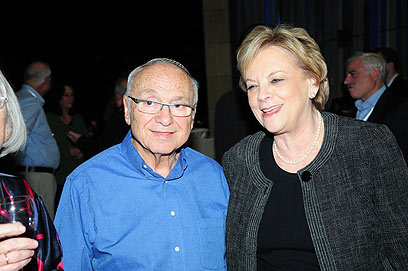
Supreme Court President Dorit Beinish said Wednesday that Israel stands at a legislative crossroads, expressing concern that the Jewish state hasn't made adequate progress in the human rights arena over the past two decades.
"It's doubtful that our political culture has undergone significant change as result of the constitutional revolution," Beinish posited, referring to a set of human rights laws that were passed in 1992. "How seriously can the basic law be taken if it can be cast aside with temporary orders?"
Related articles:
- Rosenblit: No one has right to take away basic rights
- Peres: Recent legislation is 'march of folly'
Op-ed: Israel's courts under attack
Beinish, who spoke at an event held at Herzliya's Interdisciplinary Center to mark the 20th anniversary of the controversial legislation, warned against a "shaky" lawmaking institution, but noted that she is not optimistic about the prospect of the Knesset overcoming these "deficiencies" in the near future.

Beinish, Justice Minister Yaakov Ne'eman (Photo: Arnon Paz)
"I am afraid for the legislative system," she said. "It is very difficult to see what's coming ahead. In a society that is so divided and polarized, finding common ground isn't easy."
The judge stressed that the events of the past year have defined a need for basic law that addresses social rights, and called for more a aggressive promotion of a constitution.
"A review of the reality over the past twenty years shows that despite the difficulties and the criticism, the idea of a constitution exists in the State of Israel," she said, adding that along with the positive developments, the current state of affairs is unsatisfactory.
Some 30 social protesters stood up prior to Beinish's speech and read out what they called the "Human Rights Declaration in Israel, 2011."
"It was difficult to understand what you said," the judge told the activists. "But I understand that we are all for social justice."
- Receive Ynetnews updates
directly to your desktop















